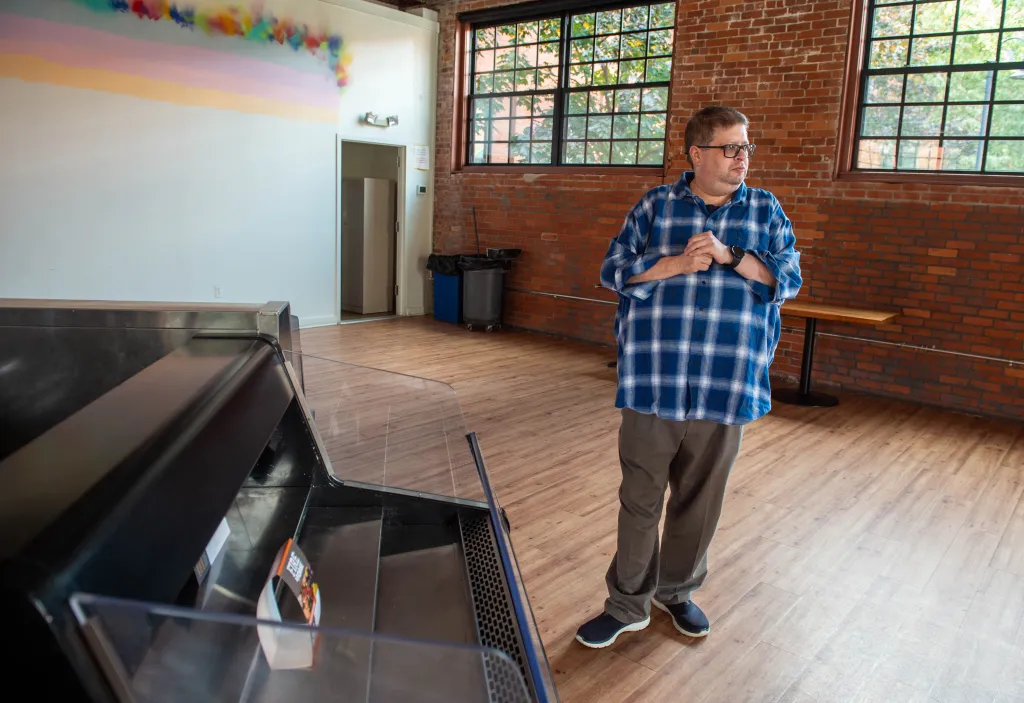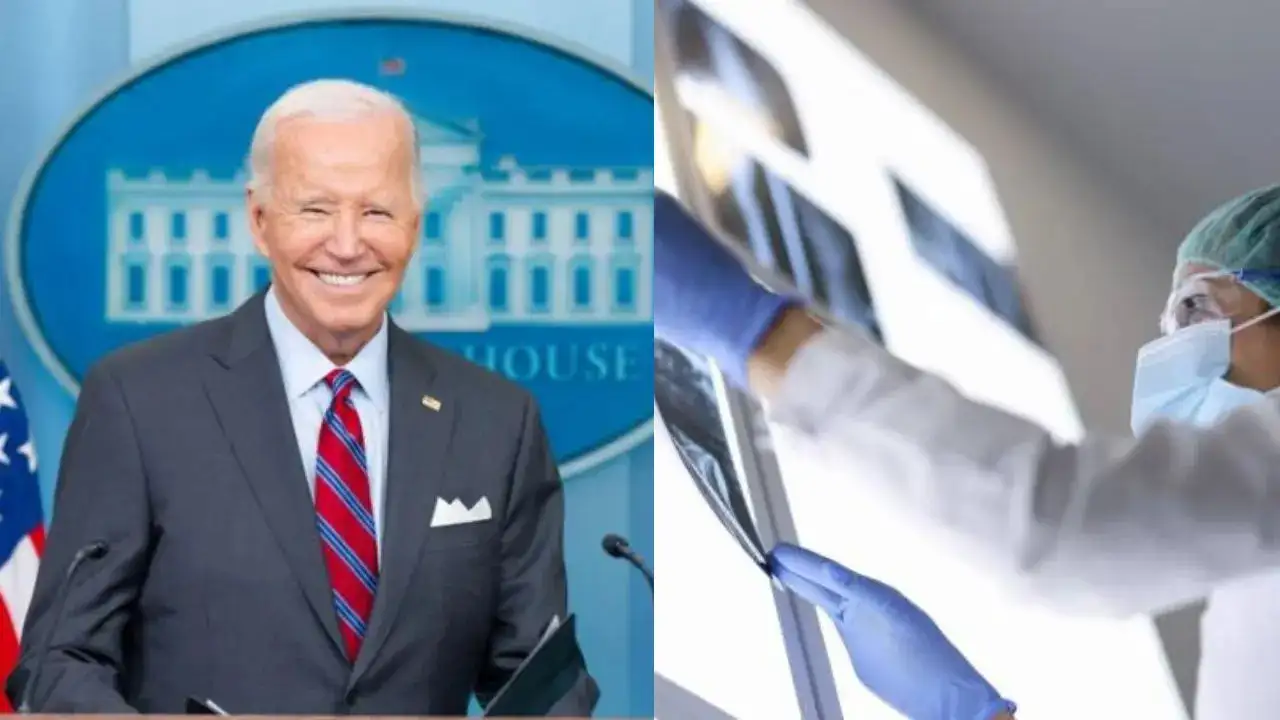Copyright Hartford Courant

As the federal government shutdown reached Day 20 on Monday, state and federal officials are concerned that about 360,000 Connecticut residents could lose their food stamp benefits starting on Nov. 1. State officials are scrambling to find a way to fill the gap if the federal government shuts off access to the Supplemental Nutrition Assistance Program, formerly known as food stamps. The benefits are awarded on debit cards that are replenished monthly, and those cards would be cut off to stop the benefits, officials said. The food shutdown would have an impact on grocery stores that could lose an estimated 5 to 10% of their business as nearly 10% of all state residents currently receive food stamps, officials said. Benefits vary based on the size of a family, but the average monthly benefit per person is about $193 or around $50 per week, officials said. U.S. Sen. Richard Blumenthal and other officials spoke at the Grocery on Broad, a nonprofit market within walking distance of the state Capitol in Hartford. “Over half of the folks who shop here are using SNAP benefits,” said Ben Dubow, executive director of the nonprofit that runs the Hartford store. “This will have a significant impact on the people we serve, particularly as we head into the holiday season. … It will impact us as a business. We’ve got to think through what we stock and how we manage things. It impacts farmers. It impacts suppliers, so the economic impact is huge.” In Washington, D.C., Republicans are blaming Democrats for the shutdown, while Democrats are doing the opposite. “Republicans have shut down the government,” Blumenthal told reporters at the Hartford market. “I’m hopeful that the state will step into the breach, but families across Connecticut and the country face a food insecurity perfect storm with rising prices and diminished benefits, compounded by the challenges with health care that Republicans have imposed with a self-inflicted wound as a result of this government shutdown.” Some residents in all 169 cities and towns receive SNAP benefits with a high of 34% of residents in Hartford, according to state statistics. The other cities with the highest totals include Bridgeport, New Haven, New Britain, New London, Waterbury and Windham. The total includes nearly 20% of all residents in East Hartford, nearly 10% in Bloomfield and East Windsor, and 5.5% in West Hartford. The numbers drop to 2.4% of residents in Simsbury, 2% in Greenwich, 1% in New Canaan, and less than 1% in Darien. Gov. Ned Lamont, who is working with colleagues on the National Governors Association to solve the problem, said the situation remains unclear on exactly how much the state can help. “Do you think we’re going to get reimbursed by the federal government?” Lamont said when asked by The Courant. “Often in a shutdown, you get reimbursed at the end of the day. The answer is so far, I don’t know. That’s not very helpful.” It also remained unclear whether the state could simply replenish the debit cards with state money instead of federal money. Stamps are no longer used in the process, and recipients simply swipe their card at the checkout counter in the same way as a credit card. “There’s some talk that the Trump administration would pull off that system and shut it down so we’re not able to do that,” Lamont said. “In that case, we would have to look at other alternate ways where we can help out people who may be in need of food. … It does seem pretty meanspirited to cut off SNAP benefits at the very same time you’re furloughing hundreds of thousands of people and asking them to work without pay.” The other alternatives, he said, could be distributing food through Foodshare, the regional food bank supplier, and local food banks. The state legislature recently tripled the amount of funding allocated to Foodshare after the Trump administration stopped deliveries of fresh food that were equivalent to about 1 million meals, officials said. Senate Republican leader Stephen Harding of Brookfield said Monday that his caucus is “ready and willing to have a serious debate about the federal changes, who they will affect, and how to address them in a responsible way that is within our smart, bipartisan fiscal guardrails.” Separate from the SNAP program, the state is currently providing $200,000 per day for the federal Women, Infants and Children, known as WIC, that helps 11,000 pregnant women, 11,000 newborns, and about 30,000 children in Connecticut. The program provides food aid that includes infant formula. “Their reserves are limited, and we’re going to have to backstop that given the reserves that we have as the state of Connecticut,’ Lamont said recently. “So I want those young families, those moms to know that your WIC card will continue to be good for the foreseeable future. We’re making sure that the government does not take that away from you.” At the same time, a nonprofit data group, DataHaven, released a report on SNAP benefits that shows problems ahead as new work requirements will be instituted under Trump’s tax-and-spending bill that is known as the One Big Beautiful Bill Act. “In Hartford, about 6,000 families are expected to lose $25 or more in monthly SNAP benefits, with benefit losses totaling between $1.1 million and $1.6 million each month,” the report summary said. “Bridgeport, New Haven, and Waterbury are each projected to see over 4,600 families losing $25 or more in monthly benefits, adding up to total benefit losses of between $890,000 and $1.3 million per month in each city. Impacts will reach beyond urban areas, too.” Meg Hadley Zimmerman, program manager at End Hunger CT, said SNAP cutbacks will have a broad impact. “Feeding hungry people should not be a political problem,” she said. “Food is the most basic building block for a healthy, thriving community. When we cut SNAP, we’re not just cutting benefits — we’re cutting stability, long-term health, and opportunity. Food is medicine. Food is educational success. Food is jobs. Every dollar invested in SNAP pays dividends in healthcare, education, and economic resilience.” Christopher Keating can be reached at ckeating@courant.com



